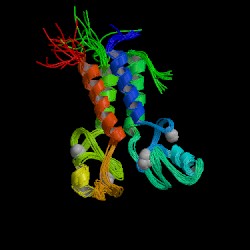 A new study underscores the importance for women with a family history of breast or ovarian cancer to get genetic counseling and testing for the BRCA1 and BRCA2 genes that make them more likely to develop lethal breast or ovarian cancer, says a Northwestern Medicine oncologist. The study, which was published in the Sept. 1 issue of the Journal of the American Medical Association (JAMA), shows women with the gene live longer and nearly eliminate their risk of cancer by having prophylactic surgeries to remove their ovaries and fallopian tubes (salpingo-oophorectomy) or their breasts in a mastectomy.
A new study underscores the importance for women with a family history of breast or ovarian cancer to get genetic counseling and testing for the BRCA1 and BRCA2 genes that make them more likely to develop lethal breast or ovarian cancer, says a Northwestern Medicine oncologist. The study, which was published in the Sept. 1 issue of the Journal of the American Medical Association (JAMA), shows women with the gene live longer and nearly eliminate their risk of cancer by having prophylactic surgeries to remove their ovaries and fallopian tubes (salpingo-oophorectomy) or their breasts in a mastectomy.
“This is the first study to prove women survive longer with these preventive surgeries and shows the importance of genetic testing when there is a family history of early breast or ovarian cancer,” said Virginia Kaklamani, M.D., co-author of an accompanying editorial in JAMA. Kaklamani is director of translational breast cancer research at the Robert H. Lurie Comprehensive Cancer Center of Northwestern University. She also is an associate professor of medicine at Northwestern University Feinberg School of Medicine and an oncologist at Northwestern Memorial Hospital.
In the editorial, Kaklamani and coauthor, Laura Esserman, M.D., a physician at the University of California, San Francisco, describe what the findings mean to women and their physicians.
“Primary care physicians, gynecologists and women need to be more aware that these tests exist,” Kaklamani said. “So if a woman has a family history of ovarian cancer or breast cancer, the woman can be genetically tested. Testing should not start with the oncologists. That’s when patients already have breast cancer. The primary care doctors and gynecologists are the ones who should evaluate patients and offer them genetic counseling.”
About 10 to 20 percent of breast and ovarian cancers are due to BRCA1 or BRCA2 genes. “Most of these women will die of ovarian cancer, so you can save 20 percent of them with the prophylactic surgery,” Kaklamani said. “And you can save the majority of women who would have died of their breast cancer.”
Even women diagnosed with breast or ovarian cancer can still benefit from genetic testing “because the presence of a mutation significantly increases the risk of a second primary (breast or ovarian) diagnosis and often influences the choice of treatments,” the authors write.
While some women diagnosed with the gene mutation may opt for surveillance with an alternating mammogram and breast magnetic resonance imaging every six months, the authors emphasize surveillance is not prevention. And, ovarian cancer screening has limited value.
Women should be aware that options for these preventive surgeries have improved, the authors note. A laparoscopic salpingo-oophorectomy is a relatively low-risk procedure and can be done in an out-patient setting. And cosmetic options for women getting mastectomies have greatly improved.

Comments